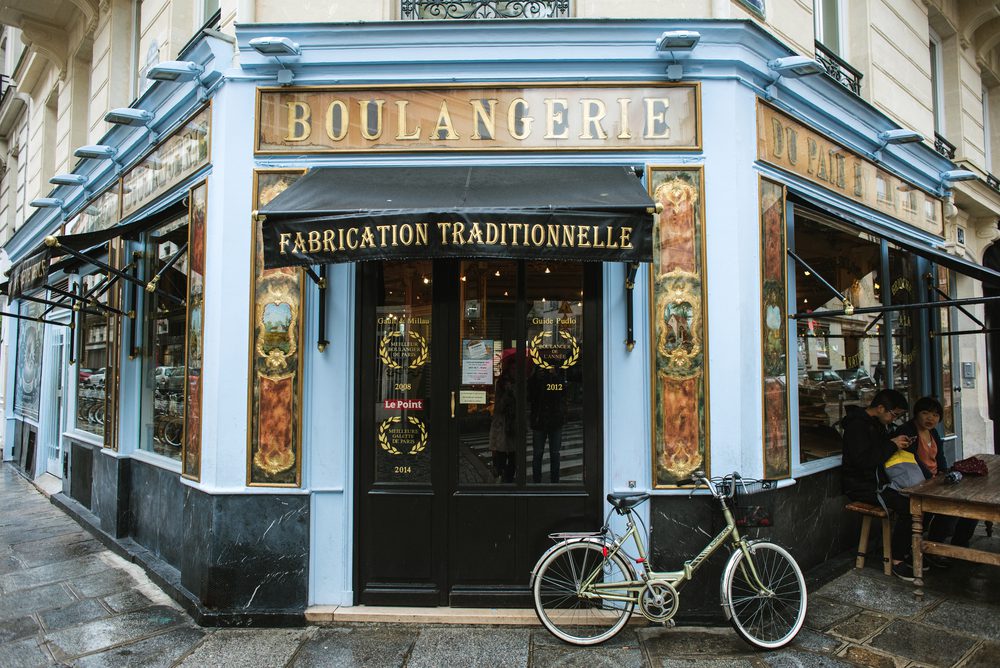
The surge in energy prices linked to the war in Ukraine is beginning to have a serious impact in France, with victims whose downfall is hitting public opinion hard, both practically and symbolically. French bakers are closing down, one after the other, because they cannot pay their soaring electricity bills. An estimated 33,000 artisan bakers are now threatened with closures.
For several weeks, headlines in the regional press have reported on the closure of bakeries throughout the country—in dramatic circumstances and with deep human tragedies as a result. Many craftsmen made their last batch of bread for New Year’s Day before closing their doors for good. Some were businesses that had been established in small towns for several decades, prosperous and well-established family businesses that could no longer cope with the rising costs of production.
For some shops, the energy crisis is compounding the effects of the pandemic. State-guaranteed loans that were taken out to cover the shock in 2020 and 2021 must now be repaid during another financially catastrophic situation. The rise in energy prices is also accompanied by an increase in the basic staples used to make bread: 45% for flour, up to a 100% increase for butter, not to mention sugar and salt.
Le Parisien published the testimony of Nathalie and Jean-Marc, bakers in Feucherolles, Ile-de-France. When their contract with the electricity supplier EDF was automatically renewed, they received a letter telling them that their new electricity tariff would be ten times higher in March 2023. This means that their monthly electricity bill will increase from €3,000 to €30,000.
“Even with the state aid, we’ll never make it,” says the baker. “If nothing is done for us, it’s not worth it. I’m going out of business and I’m changing jobs,” he adds bitterly. He announced that he would raise the price of his baguette by at least 10 cents in January, so as not to go under immediately, but this will certainly not be enough.
When a bakery disappears—in small rural towns, it is often the last remaining business—the shock to the inhabitants and regulars is profound. The state has promised to take action to prevent these closures from happening en masse but has devised a totally inadequate system to do so.
Economy Minister Bruno Le Maire has put forward a ‘tariff shield’ for bakers, but this only works in certain specific cases. Most of the craftsmen fall outside its scope—80% of bakers do not have access to it and risk closure.
The tariff shield is aimed at assisting small businesses, but bakers and butchers cannot benefit from it because their equipment—electric ovens or refrigerators—is too energy-intensive. The government has set a maximum consumption of 36 kVA to benefit from the ‘shield.’ Most bakers are well above this figure. Moreover, the aid only applies to a 15% increase in the bill, which is not enough in most cases. Bruno Le Maire has promised additional aid; a 20% reduction in the bill in 2023. Again, this falls far short of what is needed.
Given the importance of bread in the diet of the French, but also in their collective imagination, the increasing number of bakery closures could well be the signal of a serious social revolt.
On the 5th and 6th of October 1789, a crowd of angry women marched on Versailles to protest the shortage of bread after a poor harvest. Their rallying cry: “Let’s get the baker, the bakeress, and the little baker (le boulanger, la boulangère et le petit mitron),” that is, the king, the queen, and the little heir to the throne. The Bastille had fallen a few months earlier, but the French were not to be fed by generous ideals. The price of bread was very high and weighed heavily on households.
A procession of several thousand Parisians, mainly women, left the centre of Paris for Versailles, where they arrived after a six-hour march in the rain. They found shelter in the hall of the National Assembly and made their grievances known to the king, who had carts of bread sent to Paris. At the same time, the deputies took the opportunity to have the king sign the draft Constitution and the Declaration of the Rights of Man and of the Citizen, which had been voted on by the deputies during the summer. This episode shows how deeply the symbolism of the lack of bread is inscribed in the political unconscious of the French.
The essayist Joseph Macé-Scaron recalled this indisputable truth at the end of December on CNews: “In the history of France, when you touch the bakers, quite frankly, things go wrong.” Having in mind the famous revolutionary episode of the march on Versailles, he recalled that President Valéry Giscard d’Estaing had paid dearly politically for his decision to remove the price cap on bread, with a resulting increase in the price in the 1970s.
A large demonstration of bakers is planned in Paris for January 23rd, at the call of the Collectif pour la Survie des Boulangers et de l’Artisanat, founded by baker Frédéric Roy.
Under these conditions, the classification of the French baguette as a UNESCO World Heritage a few weeks ago has a bitter taste. For baker Jérémy Ferrer, a craftsman in Meaux interviewed by Euractiv, “it won’t change anything.” He has had to lay off his only employee, has already raised the price of his baguette, and is losing customers who cannot keep up with the price increase on an essential everyday product. His biggest fear is that traditional bakeries will eventually disappear in favour of supermarkets selling low-cost industrial bread.
